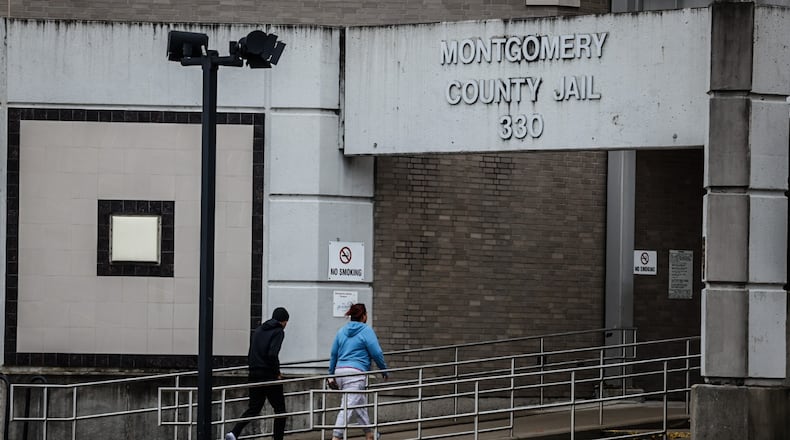Over the spring and into the summer, we kept this issue on the front pages with frequent visits to County Commission and regular communication with decision-makers. In June, we were invited by the sheriff to tour the jail and engaged in a lengthy discussion with leadership about its obligation to prevent deaths and better provide for the welfare of detainees.
Along with Dayton Anti-Racist Network and Co-op Dayton, we helped establish the Dayton Community Bail Fund that will assist community members who are unable to post bail with bail funds, legal fees, and other costs as funds are available. We continue to raise the funds necessary to launch this program and maintain it on a sustainable basis.
In 2019, the Jail Coalition was formed under the banner of NO GIANT JAIL, as the County began to plan for the facility’s future. A jail built to house 443 people was regularly overcrowded with 750-800 people. In 2021-2022, the County sought to build a jail with 900-1200 beds. In Fall 2023, the County finally announced plans to spend $20 million on an updated facility with 785 beds, including 100 fewer overall beds and 100 more medical beds. This decision was shaped by our calls for a lower jail population and better care for those that remain inside.
We continue to have serious questions about the secretive process by which this decision was reached, and the direct role of NaphCare, the private corporation contracted to provide mental and medical health care to detainees. We have questions about the conflict of interest presented by the involvement of a company set to financially benefit. We remain committed to the idea that adequate healthcare is best delivered in the community and not in the jail, and to the belief that we must continue to advance alternatives to incarceration. However, we must also pause and take stock of the fact that we set out to prevent the County from building a giant jail and we achieved that mission.
We are poised for a powerful 2024! We hope many community members can join us at our next meeting, on Thursday, January 25, at 6pm at Grace United Methodist Church.
Bobby Beebe is a Dayton resident who helps organize with the Dayton Anti-Racist Network, Montgomery County Jail Coalition, and the Dayton Community Bail Fund.
Destiny Brown currently serves as a Community Organizer with Advocates for Basic Legal Equality (ABLE) in Dayton, Ohio where she has led efforts with community coalitions to improve housing conditions for tenants and ensure police oversight through community engagement.
Joel R. Pruce is associate professor of human rights studies at the University of Dayton and also active with the Montgomery County Jail Coalition.



